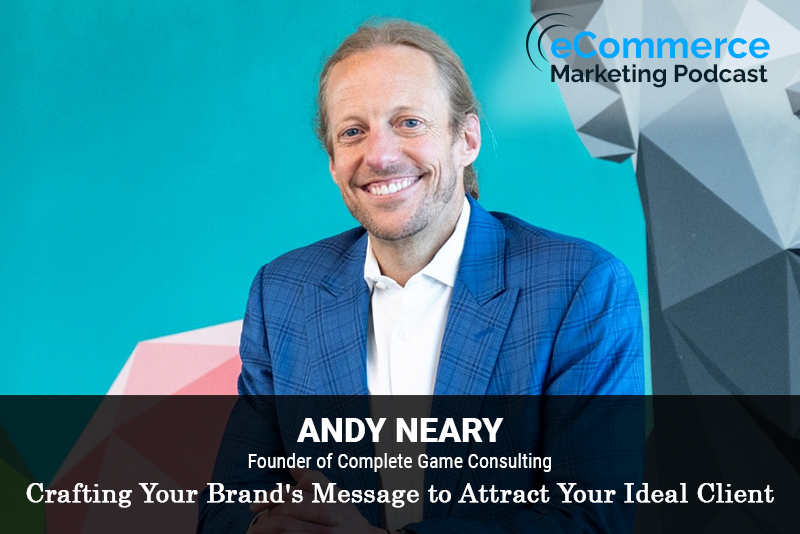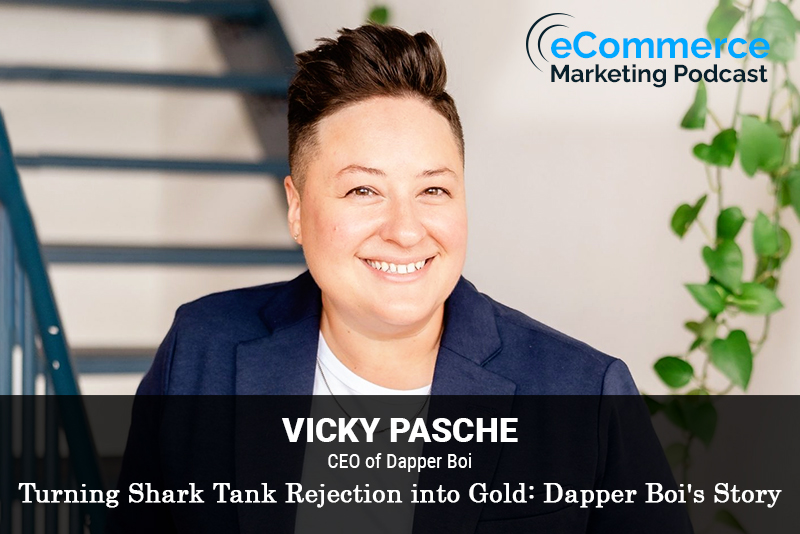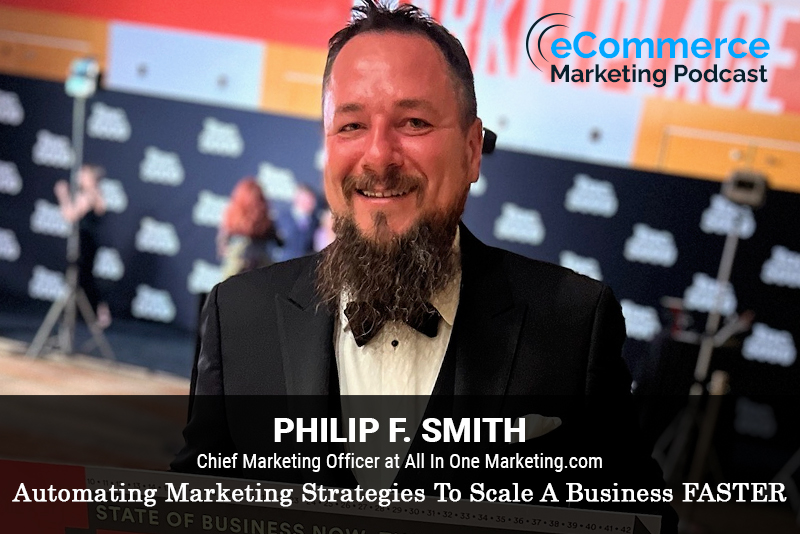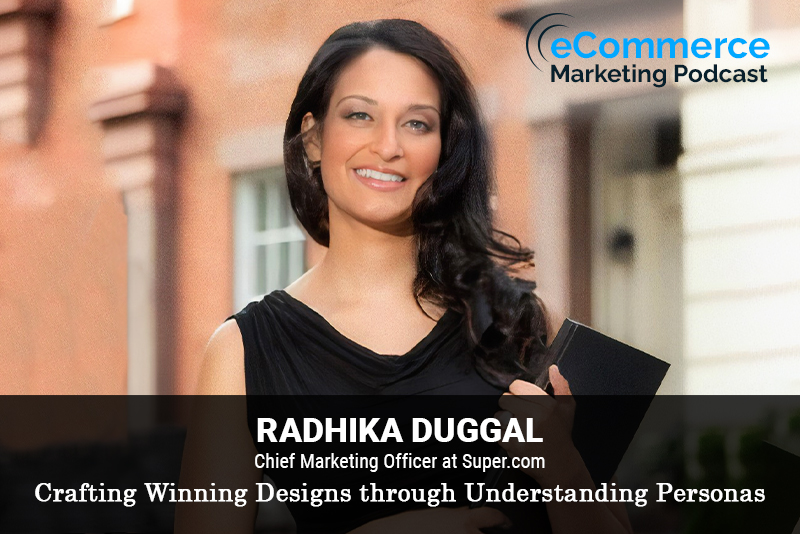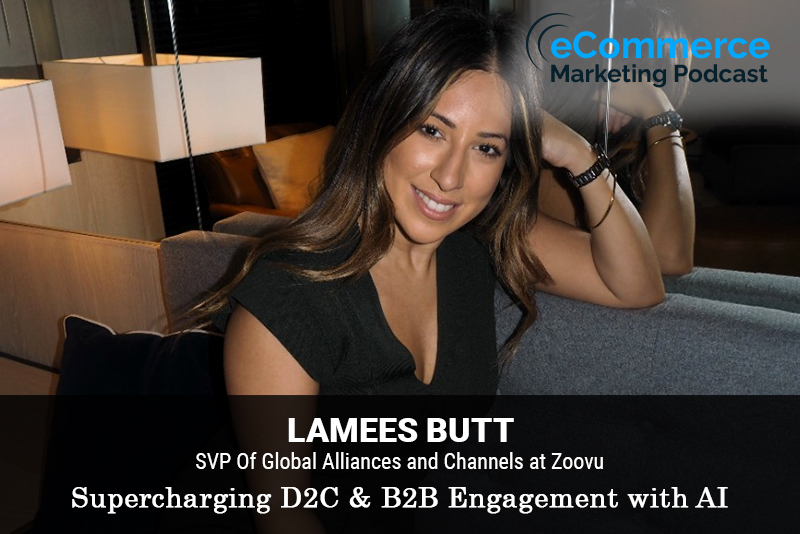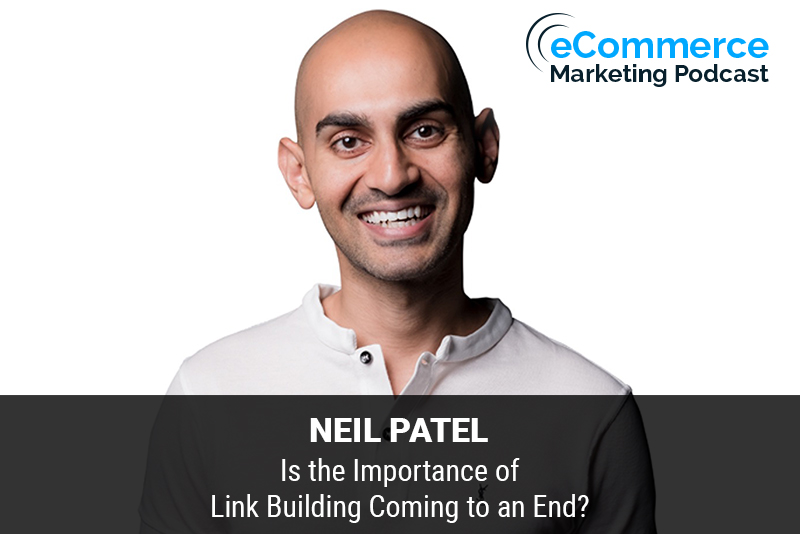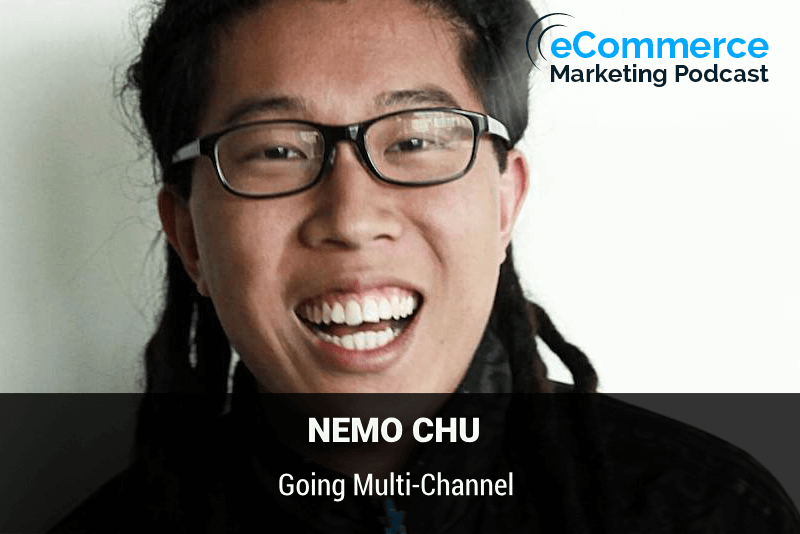
The eCommerce Marketing Podcast walks you through everything that goes into ecommerce marketing — from inbound marketing to paid advertising to conversions. Learn the strategies top marketing experts use to grow their businesses.
Head over to Leadfeeder.com and sign up for a 14-day (no strings attached) free trial!
Andy Neary is a former Professional Baseball Player, a two-time Iron Man finisher, business coach, and founder of Complete Game Consulting. Combining the skills and talents he used to compete in professional baseball and Ironman, Andy’s on a mission to help business and insurance professionals succeed in their careers and in life. He helps insurance professionals target the right audiences at the right time. His programs help people cultivate the “off-field” habits, mindset, and rituals that lead to all-star performances.
In this episode, you will learn
- How Andy’s experiences in sports have influenced his approach to building a brand
- The foundational principles for crafting marketing messages that naturally attract the target client
- An example where a brand successfully implemented the strategy of telling their prospect’s story, and the impact it had on their marketing outcomes
- Common pitfalls brands fall into when trying to adopt this prospect-centered storytelling approach, and how can they avoid them
- For businesses looking to pivot their marketing strategy to focus more on their prospects’ stories, the first practical steps they should take to make this shift effectively
For show transcript and past guests, please visit https://www.ecommercemarketingpodcast.com
Or on YouTube at:
https://www.youtube.com/channel/UC3PgT0NOGzpdPGQtBK0XLIQ
Follow Arlen:
Twitter: https://twitter.com/askarlen
Facebook: https://www.facebook.com/arlen.robinson.7
Instagram: https://www.instagram.com/arlenyohance/
LinkedIn: https://www.linkedin.com/in/arlenrobinson/
Past guests on the ecommerce marketing podcast include Neil Patel, Nemo Chu, Luke Lintz, Luke Carthy, Amber Armstrong, Kris Ruby and many more.
Thanks for listening. Be sure to subscribe and leave a review.

In this episode of the E-Commerce Marketing Podcast, host Arlen Robinson interviews Andy Neary, founder of Complete Game Consulting. Andy, a former professional baseball player and Ironman finisher, shares how his experiences in sports have influenced his approach to business and marketing. He focuses on helping insurance professionals and businesses target the right audiences and craft compelling marketing messages. The discussion centers on the importance of telling the prospect’s story rather than the brand’s story to attract the right clients.
Key Takeaways
- Introduction and Background ([00:02] – [03:01])
- Andy Neary’s journey from professional baseball to business coaching.
- Overcoming limiting beliefs and building a successful career in insurance and consulting.
- Building a Personal Brand ([03:01] – [06:18])
- The importance of building a recognizable brand.
- Transitioning from insurance to coaching and training professionals in effective marketing.
- Lessons from Sports Applied to Business ([06:18] – [09:34])
- The significance of off-field habits and consistency in achieving business success.
- Key principles: consistent, persistent, and patient efforts.
- Telling the Prospect’s Story ([09:34] – [12:21])
- Using storytelling to connect with prospects.
- The framework for storytelling: character with a goal, a problem, a guide, a plan, success, and failure.
- Crafting Marketing Messages ([12:21] – [15:30])
- Identifying the ideal client and their demographics and psychographics.
- The Five-Star Prospect Profile exercise to target the right audience.
- Case Study: Focused Marketing Strategy ([15:30] – [19:58])
- Example of an insurance agency focusing on captive insurance.
- Achieving exponential growth by narrowing marketing focus on a specific product.
- Avoiding Common Pitfalls ([19:58] – [23:28])
- Making the prospect the hero of the story.
- Avoiding confusion by focusing on one problem and one goal per marketing message.
- Using social media effectively without getting caught up in likes and comments.
- Practical Steps for Pivoting Marketing Strategy ([23:28] – [24:58])
- Clearly define who you are talking to, what you are saying, and where you are saying it.
- Utilize the Story Brand framework for effective storytelling.
- Focus on channels that offer exponential awareness, such as social media, podcasts, YouTube, and public speaking.
Guest Info
Andy Neary
Founder of Complete Game Consulting
Website: Complete Game Consulting
LinkedIn: Andy Neary
Instagram: Andy Neary
Download Andy’s free course on the four pillars of the Complete Game Marketing Playbook at Complete Game Playbook.

